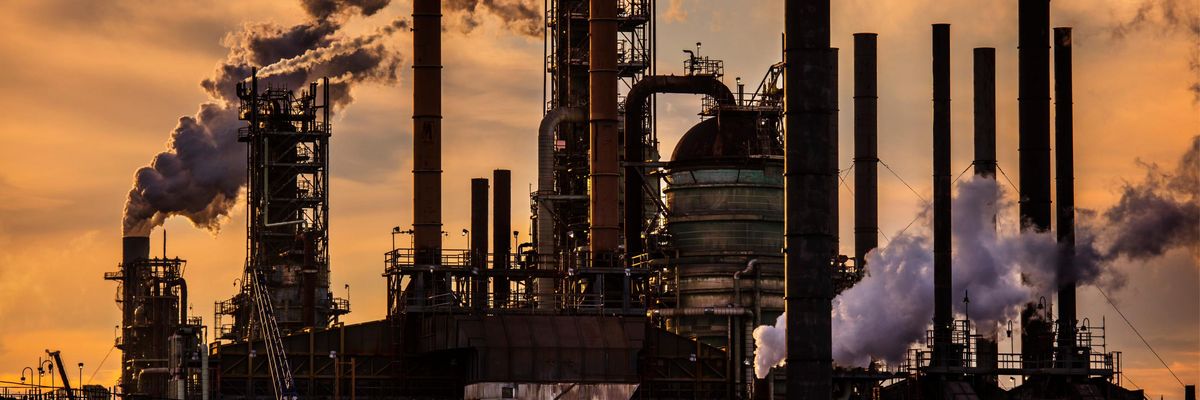It sounds incredible: while politicians have been cackling about the climate emergency and profiling in empty promises to halt it, they have spent six trillion US dollars from taxpayers' money to subsidise fossil fuels in just one year: 2020. And they are set to increase the figure to nearly seven trillion by 2025.
Add to this that governments will double the production of energy from these very same, highly dangerous, global warming generators.
IMF study reports that globally, fossil fuel subsidies were 5.9 trillion US dollars in 2020 or about 6.8 percent of Gross Domestic Product (GDP). And that such subsidies are expected to rise to 7.4 percent of GDP in 2025
According to the study, 8 percent of the 2020 subsidy reflects undercharging for supply costs (explicit subsidies) and 92 percent for undercharging for environmental costs and foregone consumption taxes (implicit subsidies).
Efficient fuel pricing in 2025 would reduce global carbon dioxide emissions 36 percent below baseline levels, which is in line with keeping global warming to 1.5 degrees, while raising revenues worth 3.8 percent of global GDP and preventing 0.9 million local air pollution deaths. Accompanying spreadsheets provide detailed results for 191 countries, IMF adds.
Commenting on this fact, Antonio Guterres, the UN Secretary General, said that "... promises ring hollow when the fossil fuels industry still receives trillions in subsidies, as measured by the IMF. Or when countries are still building coal plants..."
Every country, city, company and financial institution must "radically, credibly and verifiably" reduce their emissions and decarbonise their portfolios, starting now, said Guterres.
Time running out for oil and gas?
Hard to believe when just 11 countries presented the Beyond Oil and Gas Alliance at November's UN Climate Conference in Glasgow.
Ireland, France, Denmark, and Costa Rica. among others, as well as some subnational governments, launched a first of its kind alliance to set an end date for national oil and gas exploration and extraction.
One of the Alliance members' representative, Andrea Meza, Minister of Environment and Energy for Costa Rica commented: "Every dollar that we invest in fossil fuel projects is one less dollar for renewables and for the conservation of nature..." she added.
Energy Devourers
By 2050, 1.6 billion people living in cities will be regularly exposed to extremely high temperatures and over 800 million people living in cities across the world will be vulnerable to sea level rises and coastal flooding.
According to UN Habitat, which deals with human settlements and sustainable urban development, cities consume 78 percent of the world's energy and produce over 60 percent of greenhouse gas emissions-while accounting for less than two per cent of the Earth's surface.
Inger Andersen, the head of the UN Environment Programme (UNEP) reported that "We build the equivalent of new buildings the size of Paris every week, and if that is the way we are expected to expand we need to think about how we do it because of climate, biodiversity, livability, quality of life. We need to build better.",
According to Andersen, building and construction are responsible for 37 percent of CO2 emissions with construction materials like cement, accounting for 10 percent of global emissions.
She also pointed out that over half of the buildings that will be standing in 2060 haven't been constructed yet.
According to UNEP, only 19 countries have added codes regarding energy efficiency for buildings, and put them in place, and most of future construction will occur in countries without these measures.
"For every dollar invested in energy efficient buildings, we see 37 going into conventional buildings that are energy inefficient. We need to move from these incremental changes because they are way too slow, we need a real sector transformation. We need to build better," Andersen said, calling for more ambition for governments if they are to fill the promise of net-zero.
Cars, buses, trucks, ships...
The transport sector is responsible for approximately one quarter of global greenhouse gas emissions, according to the Intergovernmental Panel of Experts on Climate Change (IPCC).
The sector's emissions have more than doubled since 1970, with around 80 percent of the increase caused by road vehicles. The United Nations environment programme UNEP calculates that the world's transport sector is almost entirely dependent on fossil fuels.
"A world where every car, bus and truck sold is electric and affordable, where shipping vessels use only sustainable fuels, and where planes can run on green hydrogen may sound like a sci-fi movie."
This is how governments spend trillions of taxpayers' pockets to subsidise fossil fuels that can only aggravate the ongoing climate emergency.

